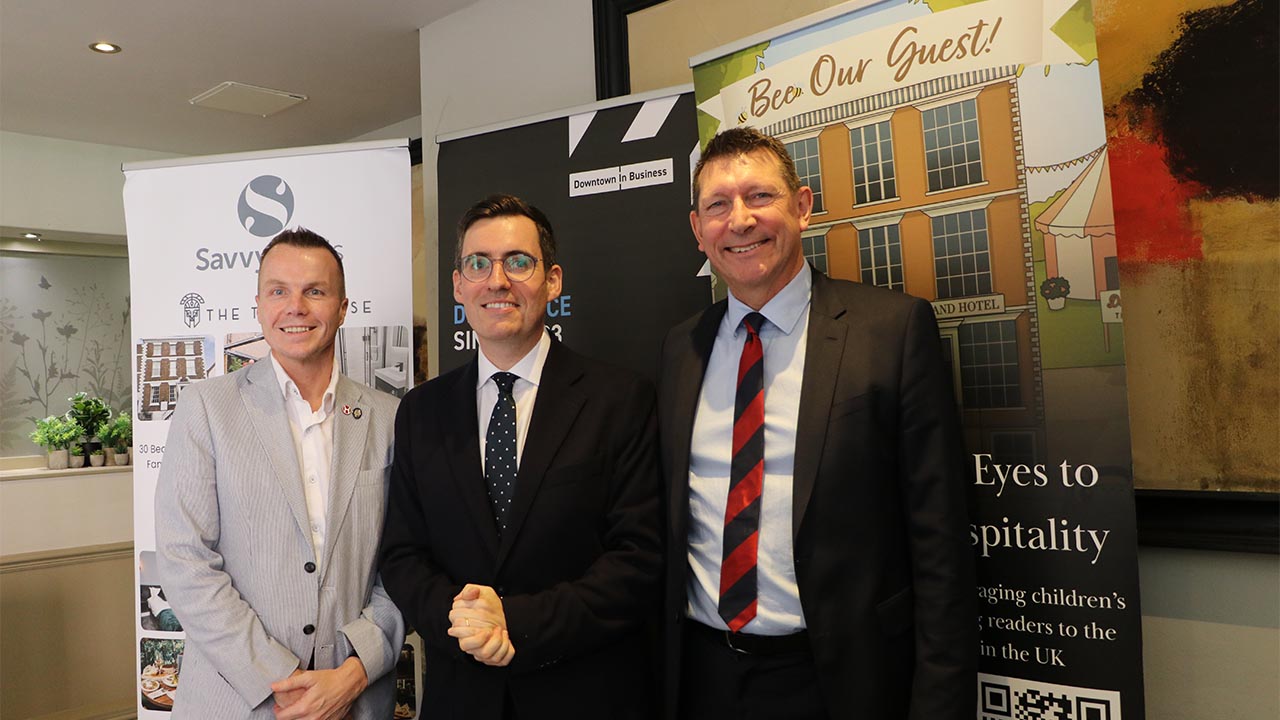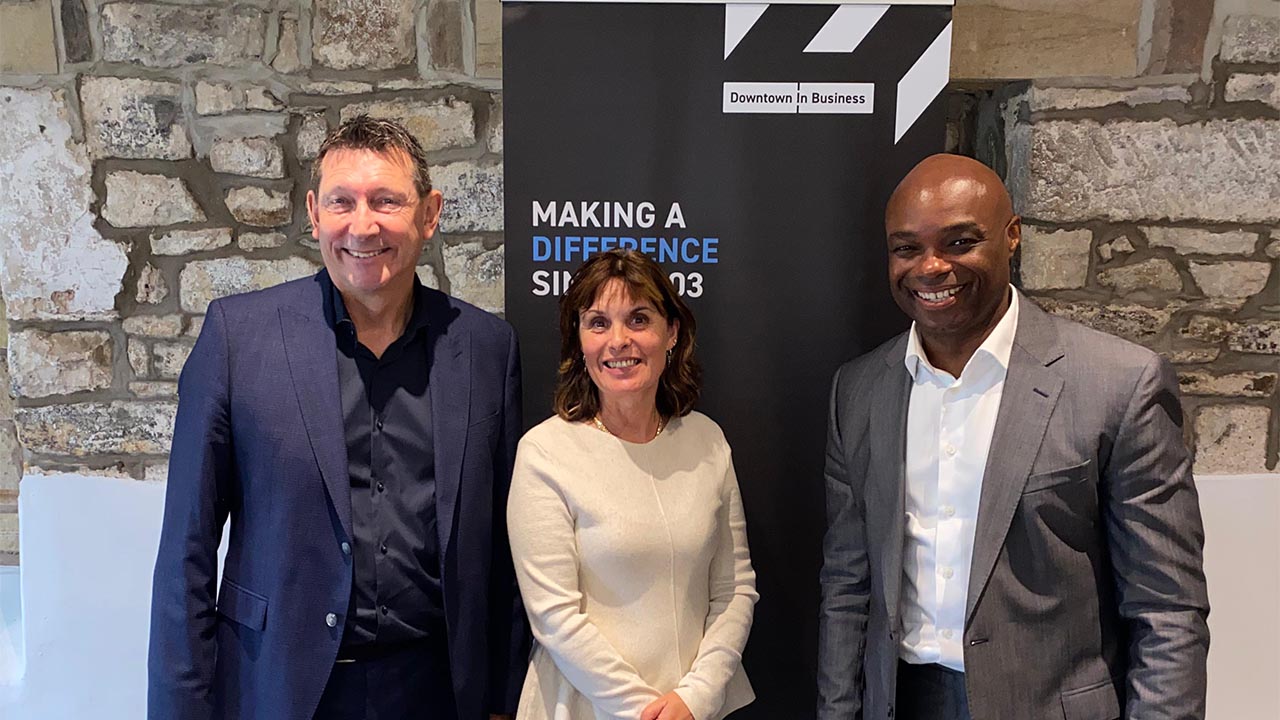Liverpool has set out an unprecedented £1.4bn plan to help boost the nation’s post-Covid recovery and preparations for a post-Brexit economy.
The city has submitted a 178-page report to the Prime Minister and the Chancellor outlining how the city aims to prevent a socio-economic crisis deeper than the 1980s recession, with a multi-layered programme which if delivered, will create 25,600 jobs, provide an additional 12,000 construction jobs and more than 9,700 apprenticeships.
Commissioned by the Mayor of Liverpool Joe Anderson, this fully costed post-Covid recovery strategy sets out a five-year vision that also underlines Liverpool’s key strategic role as a global gateway in post-Brexit Britain.
Co-signed by the Metro Mayor of Liverpool City Region, the Liverpool Economic Recovery Plan (LERP) also has the backing of 72 leading figures from the city’s commercial, legal, financial and cultural sectors including Liverpool FC Chief Executive Peter Moore, Vice-Chancellor of the University of Liverpool Professor Dame Janet Beer and John Godfrey of the fund Legal & General.
The LERP report focuses on four key themes – Innovation, Housing, Employment and Creativity – with the goal of providing jobs and supporting people in accessing lifelong careers in the areas which will drive the UK economy in future decades.
Liverpool, which has been resurrecting its economic base for the past 20 years following its dramatic collapse for the preceding 40 years, has been heavily impacted by Covid-19 and Liverpool City Council has moved quickly at the outset of the pandemic to set out a strategy (initially called Operation Greyhound) which ensures recent momentum is not lost.
Before Covid-19 struck Liverpool was averaging £1bn a year in regeneration investment and was steadily establishing itself as a world leading destination for medical research, digital health and life sciences. Its three universities annually educates 70,000 students and the visitor economy of the former European Capital of Culture (2008) has grown to more than £3bn a year.
In a letter to the Prime Minister introducing the plan, Mayor Joe Anderson and Metro Mayor Steve Rotheram jointly set out how the vision aims to underpin this recent growth and address the risk of mass unemployment when the Government’s emergency employment and business support measures are phased out from this Autumn.
The LERP report which will be going to the city council’s cabinet for endorsement next Friday, 3 July, has identified more than 25 shovel ready projects – most of which could begin before the end of 2020.
Totalling £1.4bn these projects include a new cruise terminal, a major housing development next to the International Festival Gardens site, the next phase of the city’s health innovation campus at Paddington Village as well as a Science and Tech Innovation Centre as part of the Liverpool John Moores University development at Copperas Hill in the city’s Knowledge Quarter (KQ Liverpool).
The recovery plan, which was co-authored by independent economic consultants Metro Dynamics, is requesting £200m of central government funding for physical construction and more than £267m for apprenticeship and skills training programmes.
Other key projects include:
- Health Innovation Liverpool (The HILL at Paddington North): A virtual platform hosting integrated health data platform to enable greater understanding of the health and economic impacts of COVID-19. This will inform improved public health responses to any future pandemics and general health of civil population.
- Community Wealth Building by Housing Retrofit: A transformational housing retrofit project, focused on re-developing vulnerable and hard to reach neighbourhoods. This project proposes the development of modular housing and the retrofit of 4,000 homes as a critical step towards climate change targets and community wealth building.
- Creative Enterprise Allowance: This scheme would offer 12-month grants for up to 200 artists and creatives to encourage new, sustainable businesses and entrepreneurship, as well as delivering a cultural bursary scheme to support 50 individuals. These artists would form a new ‘creative think tank’, available to businesses and the council to provide creative thinking on overcoming tomorrow’s challenges.
- TV and Film Pop-Up Studio: A temporary film studio on vacant city-owned land in the 3 years until Littlewoods Studios is running at full capacity. Two 20,000ft2 sound stages would be available for film and TV production, extending content producers’ stay and spend in Liverpool.
On Monday (22nd June 2020) the city unveiled the first plank of the LERP report with its “Liverpool Without Walls” programme to support the hospitality industry, by reshaping key streets to support outdoor dining.
Reaction:
Mayor of Liverpool Joe Anderson said: “The Covid-19 lockdown has left cities like Liverpool in a state of economic paralysis and the option of doing two things – wait for events to unfold or take action. Liverpool has acted. This recovery plan is a blueprint for a new Liverpool. Forged by ambition and confidence to be innovative in how we create new skills, new homes and new jobs, and it has the weight of the entire city behind it.
“Liverpool has undergone a renaissance over the past two decades and we are not about to let the momentum slip. Our knowledge, digital and visitor economies are flourishing and this recovery plan sets out a detailed strategy to build on those platforms. By investing in these key projects we can renew this city and its position it as a gateway for Britain for the 21st century.
“This recovery plan is immensely detailed and the sheer volume of partners involved across both public and private sectors from a wide range of disciplines underlines our commitment to seize what is quite simply a once in a lifetime opportunity to reset Liverpool. It has been researched, analysed and fully costed and I’m confident the government will see that Liverpool means business. This recovery plan is all about partnerships – and we need the government to act as one too. The return on investment is huge, a stimulus package that will not just benefit Liverpool – but also the region and the country.”
Professor Dame Janet Beer, Vice-Chancellor of the University of Liverpool, said: “We look forward to working with partners across the city to play our part in this plan to ensure our region recovers and reforms as swiftly as possible after the current crisis. Historically, Liverpool has shown it has the capacity to adapt economically and socially by deploying the skills of its community to help it flourish in changing circumstances. We face a great challenge, but I am confident that we have the talent and expertise necessary to ensure we emerge from this crisis as a stronger, more connected city.”
Peter Moore, Chief Executive of Liverpool Football Club, said: “Liverpool Football Club has played a major part in this city’s past and it intends to play a major role in the city’s future. We believe in and support this five year plan and are fully committed to playing our part in supporting the city’s economy. We are investing heavily in digitizing our business and we are relying on the local resources to achieve this. As we have seen with most progressive cities, investment in the technology sector is key to continued and consistent growth – and this awful pandemic has shown us all that technology will play an even larger role in the future. Empowering remote working and delivering education and entertainment in this new world order will be key to growth. Liverpool’s Knowledge Quarter is a fantastic incubator for emerging tech companies and has amazing potential to deliver the city’s aspirations.”
John Godfrey, Corporate Affairs Director at Legal and General, said: “Liverpool’s bid is imaginative, practical and plays into a policy agenda which requires investment-led recovery and levelling-up across the whole of the UK. Our experience investing over £20bn across multiple UK cities is that a compelling city vision can be delivered by the right partnership between central government, city government and the private sector: this is squarely in that space.”
Jessica Bowles, Director of Strategy at Bruntwood, said: ”As long term partners in Liverpool we have seen the city rebuild itself as a vibrant, creative, outward looking city over the last 20 years. Through Bruntwood Scitech our JV with Legal and General Capital we have invested in the Knowledge Quarter (KQ Liverpool) through a stake in Sciontec, which owns and operates Liverpool’s Science Park. The deal was signed during the lockdown, something I hope that demonstrates our confidence in the city partners and Liverpool’s future. The plan published today demonstrates the best of city and city region partnership working and how stakeholders coming together with a common goal can identify, prioritise and then deliver great change. We look forward to supporting this over the next phase of the city’s life.”
Colin Sinclair, Chief Executive of KQ Liverpool, said: Liverpool, as a city and city region, is a global brand. A city regenerated by culture, the creative industries and tourism and increasingly powered by its knowledge economy. Recognising that, we have devised an evidence based place to accelerate our recovery from coronavirus. Focusing on where we are world-class. A plan that focuses on our strengths in science and technology, including public health and integrated data, the creative industries and media/film and that protects our vital visitor economy in readiness for the better times ahead. This plan isn’t just theory. It will create real jobs now. In construction and business. And position Liverpool at the forefront of UK’s economic recovery.”






